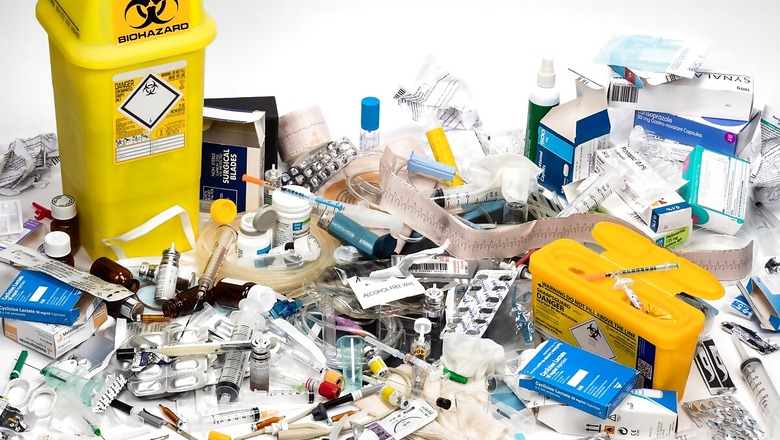
views
As the COVID-19 pandemic increases dramatically across the globe, it has threatened millions of lives and disturbed the economy of cities and nations. Not just this, the pandemic has also had a paramount impact on the environment. The entire world has transformed its way of living in a matter of a few months. It seems apparent that as most of the governments and private agencies are primarily concentrated around public health, there is a major lack in other perspectives.
Here are few impacts the pandemic has brought to the environment:
Non-recyclable waste:
The home delivery services during the lockdown were increased. Online shopping requires a lot of plastic packaging these days, replacing reusable paper bags which was slowly becoming popular before the pandemic. Retailers have opted for single-use plastic bags due to an increase in health concerns. All the generated waste ends up adding to the landfills and the environment.
Organic waste:
The export and imports of essential commodities have also come to a standstill. This is mainly because of the sharp decline in the accessibility of cargo transportation services. Severe cuts in fishery and agriculture export levels have resulted in wastage of enormous quantities of produce.
Medical and Clinical Waste:
The amount of medical waste generated during the ongoing pandemic is also very high, compared to the what was generated in usual times. This can also imply that the population can be at risk of negative impacts from exposure to such waste — especially cleaners, garbage collectors and the section of the population who spend a lot of time in public spaces. The frontline workers working hard to keep cities clean have become one of the most vulnerable groups. They may also catch various forms of infection such as meningitis and Hepatitis B and C.
Medical waste management:
The amount of garbage contaminated with medical waste has rapidly increased. The need is now to construct medical waste plants to treat massive amounts of increased garbage. Local waste recycling centres have hung their activities as there is the fear of virus circulation in these places.
Ecosystems at risk:
Due to the pandemic, the natural ecosystem is at a much greater risk. As many parts of the world introduced Work from Home as the new norm, people working in the protected areas such as marine conservation zones and wildlife sanctuaries had to leave these places unmonitored. The absence of these people has seen a huge rise in illegal deforestation, wildlife hunting, and fishing activities.
Read all the Latest News, Breaking News and Coronavirus News here.


















Comments
0 comment